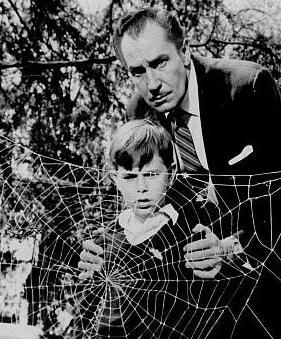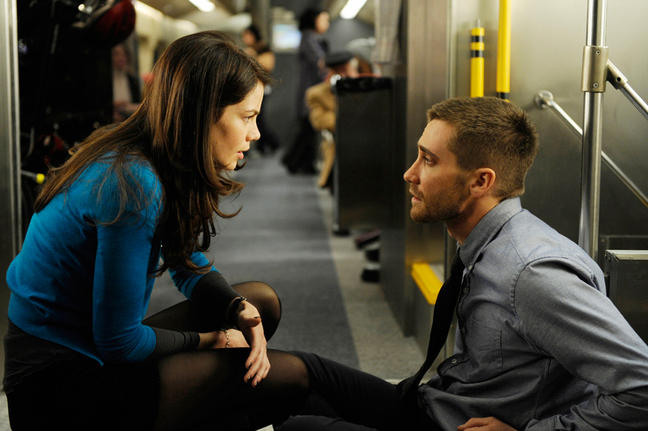|
|
Post by Jesse on Nov 17, 2014 1:52:18 GMT -5
I haven't watched Death Race 2000 but I own a copy of the short story it's based on Ib Melchior's "The Racer".
Videodrome is absolutely crazy! Great performance from James Woods.
I think the John Carpenter version is the much stronger adaptation of John W. Campbell Jr's "Who Goes There?". The film holds up incredibly well today and the special effects still look pretty damn cool.
|
|
|
|
Post by MDG on Nov 17, 2014 13:16:29 GMT -5
I watched Death Race 2000 recently, decades after watching it the first time. It has not aged well at all. The plot sounds interesting when boiled down to 2 sentences. But the movie has terrible acting,terrible dialogue,terrible special effects...its real real bad I watched it a few months ago and enjoyed it more than ever, almost especially due to the producers trying to do a story of the size and scope of this with a minimal budget. I have no problem w/ the acting or dialogue, since it's really a satire (if not a cartoon). Also, I'll watch anything with Mary Waronov in it. Trivia note: the actor who played the guy [spoil] whose head exploded in that famous scene [/spoil] in Scanners was Louis Del Grande, an American-Canadian tv writer and actor who went on to create and star in what I thought was a quite a good (non-SF) series called Seeing Things for the CBC. Looks like some episodes are available on youtube, if anyone's curious. I'm not sure how I discovered Seeing Things--I think CBS may have shown it in the late night slot for a while--but it's always been one of my favorite shows. |
|
|
|
Post by Paste Pot Paul on Nov 17, 2014 14:47:10 GMT -5
99. Escape from New York (Carpenter, 1981) In the future, Manhattan Island is a giant prison. Convicted criminals can choose between life in Manhattan or suicide. (Even today a hard choice for some). Except Snake Plissken. He gets a way out. All he has to do is rescue the president. In general, this is more of an action movie and not quite what I'm looking for in this list. I let it sneak in partly because it's John Carpenter and partly because the setup is interesting and compelling. Something I love in post-apocalyptic fiction is seeing what it's like to reform society from scratch. And here we see a new society built in Manhattan, a new order form. Except that this society is built entirely out of criminals. Sort of like Australia.
Ha ha ha ha . 'On ya mate... |
|
|
|
Post by Paste Pot Paul on Nov 17, 2014 14:54:52 GMT -5
As I said before, this list will have no sequels. But Terminator 2 was the sequel closest to making it. It is more of an action blockbuster, but a great one. Aliens and Spider-Man 2 were also strongly considered. In numerous workplace discussions, T2 is generally voted the best action film of all-time. A view I whole-heartedly agree with, and amazingly probably the only opinion I share with some of the "intelligentsia" I work with. It has a great soundtrack, a lead at the height of his power, an implacable foe, and more importantly, rewatchability. |
|
|
|
Post by coke & comics on Nov 27, 2014 11:20:36 GMT -5
71. The Fly (Neumann, 1958)  To me this is one of the perfect example of the film in which the scientist invents something cool and tests it on himself. As is often the case in film, this turns out to not be a good idea. We have already seen this idea in The Invisible Man and will be seeing it again. The film is based on a short story by George Lanelaan, published the previous year in Playboy. It spawned a franchise of films, with two direct sequels, as well as a David Cronenberg remake (itself with a sequel) a few decades later. The Cronenberg remake is also excellent, with a different take on the plot, focusing much more on what it is like to be the Fly, realized in a uniquely Cronenbergian vision. The story begins with a murder investigation, which seems simple enough when a woman confesses to killing her husband. But the situation is more complicated than any investigator imagines. The idea of the story is horrific enough, a man losing his humanity. The movie is driven by the mystery, by the drama, and by the horror. The ending is an interesting one, as two men agree that the scientists death in search of truth was noble, but that some truths are best forgotten. |
|
|
|
Post by coke & comics on Nov 27, 2014 15:44:01 GMT -5
70. The Thirteenth Floor (Rusnak, 1999)  An aspect of reality that I find quite obnoxious but that is seemingly tautologically true is that we are unable to distinguish reality from our perception of reality. As human beings, most of us our able to communicate together well enough to agree on certain aspects of reality, but that does not make them real, so much as a shared delusion. Color is an obvious example. Our entire sense of it is an artifact of our vision and how different surfaces reflect light. But a good chunk of humans seem to see basically the same thing. In the future, the rise of technology, particularly virtual reality, will allow external forces to alter our perceptions. Will these forces be able to convince us of a reality that is shared by those also affected but not shared by the rest? And how do I know for sure that I am not living right now in a sophisticated virtual reality simulation? The truth is I really can't. While this idea has at least one predecessor in film, apparently 1999 was a year ripe for the exploration of this, as three films came out with approximately the same premise in basically the same month. This is the least of the three, and thus often overlooked. But it is still an interesting film on its own merits. Part sci/fi thriller, part '20s crime drama, where it turns out the crime drama and everybody experiencing it is living in a recreation of 1920's America, a giant virtual reality world. What happens when the denizens of this world learn they are not real? Are we sure our world is any more real? |
|
|
|
Post by Deleted on Dec 1, 2014 8:20:02 GMT -5
83. Sunshine (Boyle, 2007) The spaceship on a desperate quest to reignite the dying sun. I think that's a great dramatic premise. Add that the first such ship had failed under mysterious circumstances and that this ship was literally the last chance. Boyle spends his energy creating the claustrophobic atmosphere of the ship, a small group of people in closer quarters under immense pressure and with mounting tension. Because the stakes are as high as they get, even for their mathematician and a simple calculation error. Sometimes the best option is not clear, and sometimes the crew cannot agree on what that is. The crew comes faces to face with fear, fanaticism, and the possibility of failure. What if man is really meant to die today? I thought this was a great movie and after the success of Slumdog Millionaire I'm surprised it hasn't become an established cult classic. It's an OK premise, provided you don't stop to think too much about the science, but the last act is a mess - there's a sudden abrupt turn from the first 2/3 of the film into a mad slasher movie
|
|
|
|
Post by coke & comics on Dec 7, 2014 20:49:26 GMT -5
69. Source Code (D. Jones, 2011)  In Groundhog Day, Bill Murray famously had to live the same day over and over again until he did it right. This was treated more as fantasy than science fiction. It didn't really matter why it was happening. In the TV series Quantum Leap, Scott Bakula transported his consciousness into somebody else's body in order to fix something in the past. This movie combines the two premises, and gives an attempted science fiction explanation for how. The explanation is basically to cough and use the word "quantum". Here, Colter Stevens (Jake Gyllenhaal) enters the body of the passenger of a train that blew up and gets to repeatedly live the last eight minutes of that person's life. The movie even gives a Quantum Leap nod where Gyllenhaal looks in the mirror. The Source Code is explained as an echo, an imitation of a small fragment of space-time. The brilliant but zealous director of the project explains that all that can be gained is information: Stevens must relive those same 8 minutes until he figures out who blew up the train. But Colter Stevens believes the Source Code is more than anybody had imagined. He believes he can still save the people on the train. Using science fiction logic to create a time loop effect would go on to be used to great effect in Edge of Tomorrow, where Tom Cruise must relive the same day until he can defeat invaders from space. |
|